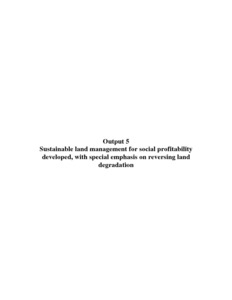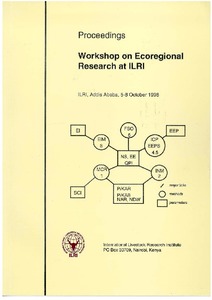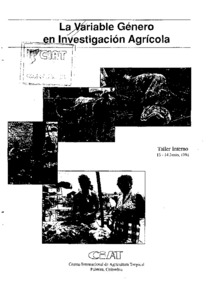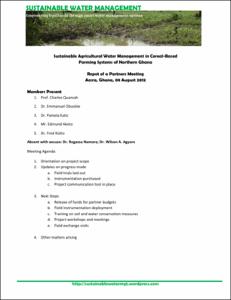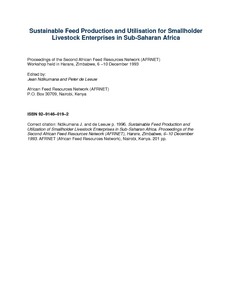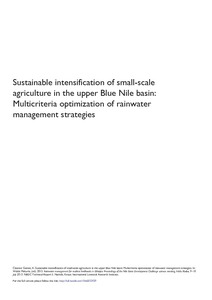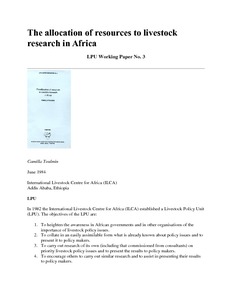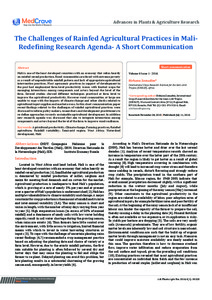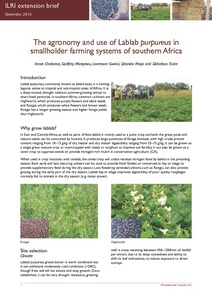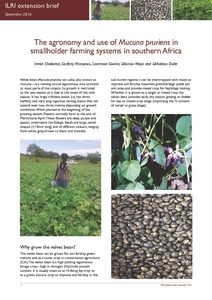System prototyping and simulation modelling in mixed farming systems
A project proposal whose aim is to promote more appropriate resource management on smallholder crop-livestock farms in East Africa is described. Prototypes of mixed farming systems will be developed to characterise farming systems according to their management objectives. These prototypes will then be used to map improvements of the farming systems by combining prototyping and simulation modelling. Scenarios will be explored to assess natural resource management interventions that promote sustainability of these prototype-farming systmes.
Taller Interno La Variable Género en Investigación Agrícola (1991, Palmira, Colombia). La variable género en investigación agrícola
Tana River Basin, Kenya: geodatabase and mapping tool. User guide
Sustainable agricultural water management in cereal-based farming systems of northern Ghana: Report of a Partners Meeting, Accra, Ghana, 8 August 2012
Sustainable feed production and utilisation for smallholder livestock enterprises in sub-Saharan Africa
Sustainable intensification of small-scale agriculture in the upper Blue Nile basin: Multicriteria optimization of rainwater management strategies
Using a multi-criteria optimization technique for system analysis, this paper quantitatively characterizes baseline production activities, resource management and environmental relationships of the mixed crop–livestock farming system at the Jaba micro-watershed, upper Blue Nile Basin, to get insights that inform sustainable intensification of small-scale agriculture.
The allocation of resources to livestock research in Africa
Examines decision making models formulated to guide the allocation of funds between alternative lines of research, issues emerging from the survey to the formation of ILCA's research policy, and various theories that account for the direction that research has taken in different contexts and reviews the past allocation of resources to livestock research in 10 African countries; includes proposal for further work.
The challenges of rainfed agricultural practices in Mali-redefining research agenda - A short communication
Mali is one of the least developed countries with an economy that relies heavily on rainfed cereal production. Rural communities are faced with extreme poverty as a result of unpredictable rainfall pattern and lack of appropriate agricultural intervention practices. Most agronomic practices in support of development in the past had emphasized farm-level productivity issues with limited scope for managing interactions among components and actors beyond the level of the farm. Several studies showed different techniques practiced at farm level to improve the agricultural productivity.
The agronomy and use of Lablab purpureus in smallholder farming systems of southern Africa
The agronomy and use of Mucuna pruriens in smallholder farming systems in southern Africa
The effect of Indonesia's economic crisis on small farmers and natural forest cover in the outer islands
Twenty million people live in or near Indonesia' s natural forests. The country's humid tropical forests are primarily in Sumatra, Kalimantan, Sulawesi, and Irian Jaya. A devastating regional economic crisis that began in mid-1997 affected Indonesia more strongly than any other country in Asia. A random sample survey of 1050 households was conducted in six outer island provinces to understand the effects of the crisis on the well-being of forest villagers and on their agricultural and forest clearing practices.

